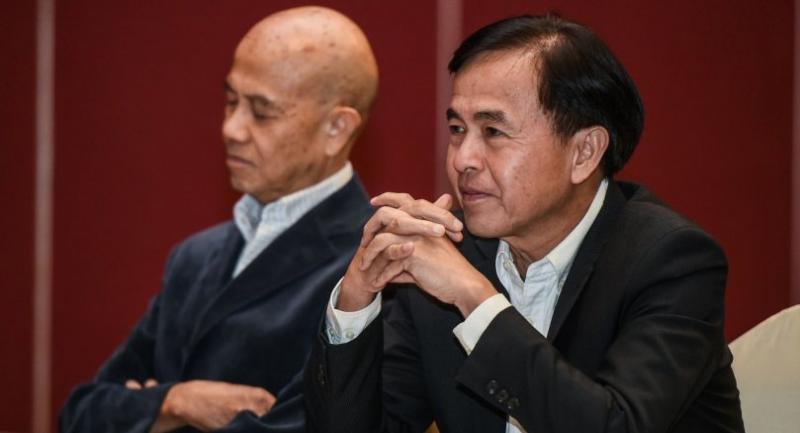Media reform session hears call to take back TV licences

IN ANOTHER bid to achieve media reform, media professionals yesterday called for a legal change to allow television broadcasters to return some of their owned frequencies to regulators.
This would not only solve the ongoing oversupply crisis but also help to promote qualified broadcasters in their ongoing efforts at self-regulation, they claimed.

The number of broadcasters has dramatically increased following the National Broadcasting and Telecommunications Commission (NBTC)’s auction of digital television frequencies n 2013. But the “gold rush” soon faded as the increase of TV channels without an increase in the consumption rate meant many broadcasters could not make ends meet.
More than half of the new TV channels have shut down, while existing channels have had to cut costs to survive. In a recent case, the eight-year-old Voice TV has said it expects to reduce its number of employees by half.
The overwhelming number of channels also makes it harder for media organisations to self-regulate and will eventually leave room for the NBTC to take action instead, media professionals said. “There are around 20 cases that digital television stations have been fighting in courts with the NBTC. But they don’t go anywhere, thanks to the NBTC’s own bill,” said one professional. “The unclear effects of our claimed self-regulation also results in the NBTC having to take regulatory steps.”
The NBTC, which is now military-dominated, has been known to suspend some TV channels or programmes that they deem to be “harmful to national security”. The programmes were mostly critical to either the ruling junta or the monarchy.

The professionals were speaking at a session held by the government-appointed media reform committee.
Hearing from the government, media and public, the event was aimed at gathering ideas for a reform report due for submission on Sunday. The report is supposed to be used as part of the government’s 20-year national strategy.
While media workers focused on enhancing the self-regulation mechanism, including coping with possibly increased state authority in the media arena, members of the public at the session saw the need for the state to improve “media morality”.
“We wish to see a collaborative platform [between the government and media] at all levels,” read a summary after the brainstorming session.
Thepchai Yong, president of the Thai Broadcast Journalists’ Association, reiterated that the media needed to boost their self-regulation integrity through the use of a media ombudsman – a new mechanism set up to ensure that consumers get fairer treatment from the media.

“Allowing state authority in the media arena is rather traditional thought,” Thepchai said. “We should support self-regulation to close the doors to any powers-that-be who want to infringe on media affairs.”
